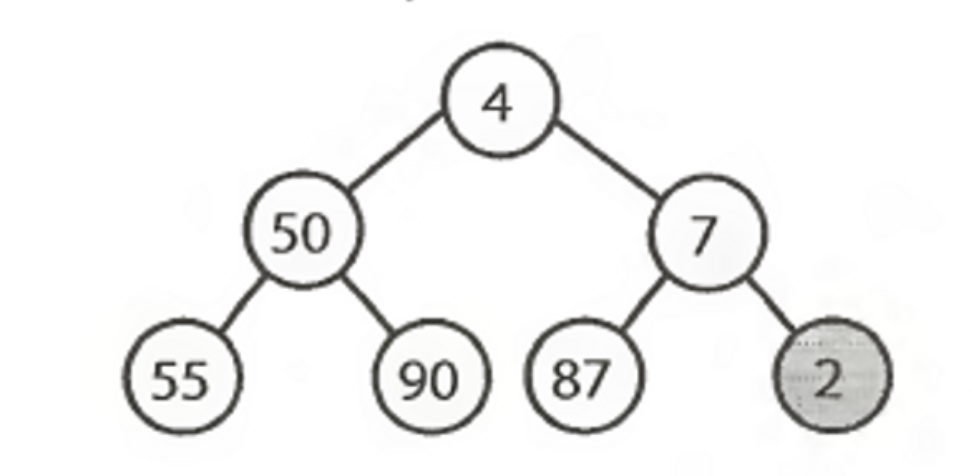Heap Theory
Theory
Value of a node is ≥ or ≤ than its children depends on if it's min heap or max heap
Binary Heap (Min, Max heap)
- Min-heap will have min at the top
- Max-heap will have max at the top
Two mains operations: insert and extract_min
Insert
Insert at the bottom. Example min-heap:

Complexity: O(log n)
Extract
Minimum element is always at the top. We:
- Remove the top element and swap it with the last element in the heap (bottommost, rightmost element)
- Sort the heap again from top to bottom
For example in a min-heap:

Complexity: O(log n) for building. Popping O(1)
Max nodes at height h
Get height from number of nodes n
In the array
A Heap can be represented as an array. We read the array from top -> bottom and left -> right.
For example this following heap can be read as:

[4,50,7,55,90,87,2]
At index k
- Its first child is at
2*k + 1. - Its second child is at
2*k + 2. - Its parent is at
(k - 1) // 2.
Tip: just remember the first child, we can figure out the rest.
See: Heap Implementation